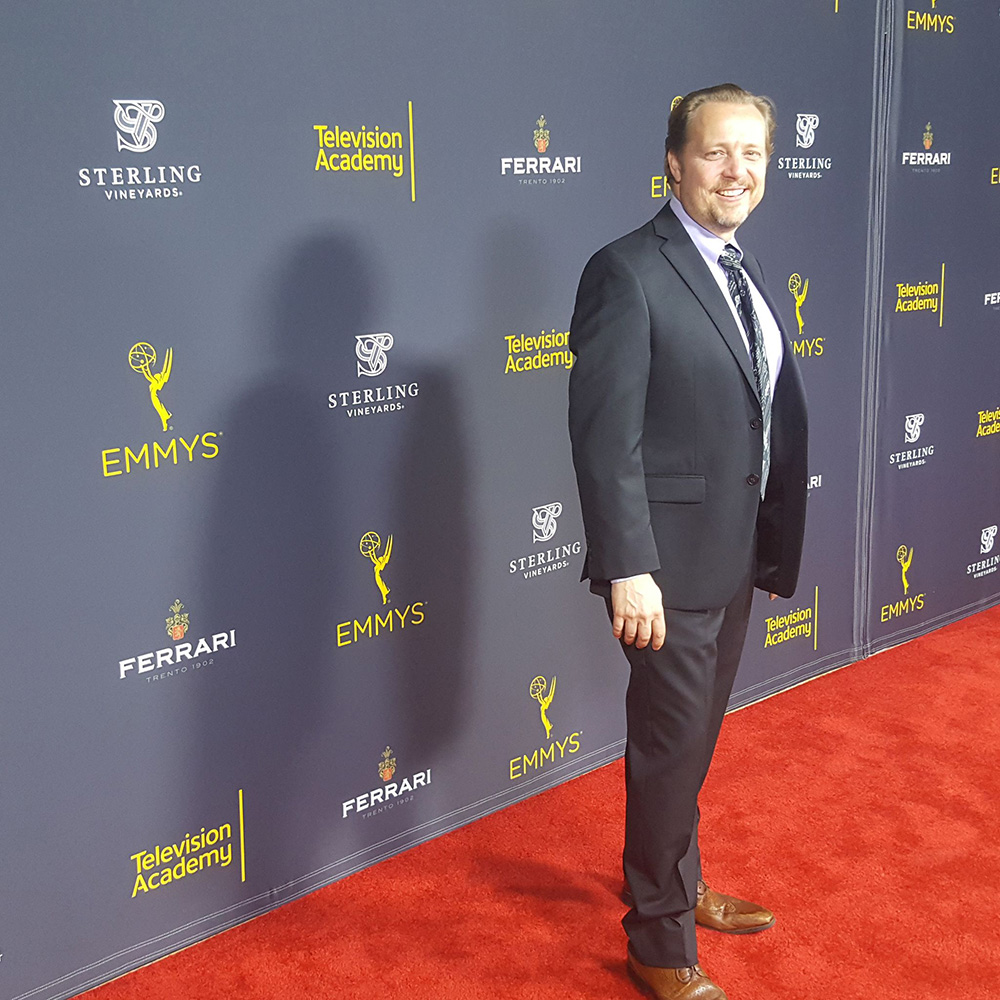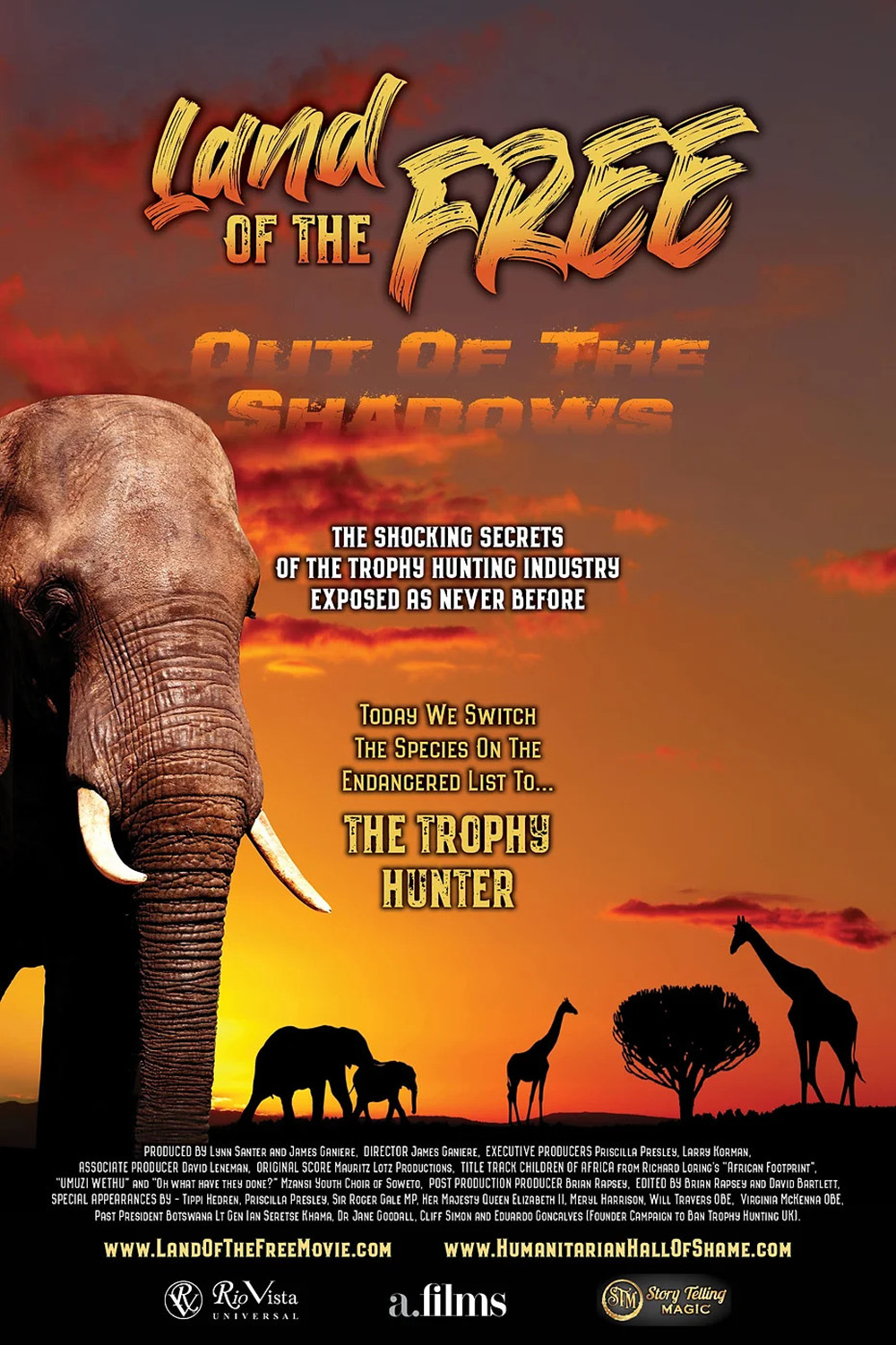In a world often tarnished by the cruel practice of trophy hunting, James Ganiere emerges as a beacon of hope and change. His documentary, “Land of the Free: Out of the Shadows,” has captivated global audiences and sparked significant legislative momentum. This compelling film delves into the harsh realities of the trophy hunting industry, unearthing truths many would prefer to keep hidden.
Ganiere’s journey began when his producing partner, Lynn Santer, exposed him to the grim truth of trophy hunting. Initially mistaking it for poaching, Ganiere soon realized the profound difference. “As I delved deeper, I couldn’t turn a blind eye,” Ganiere recalls. “I had a choice—to walk away or to act.” This pivotal moment ignited his passion to expose the hypocrisy of those who masquerade as conservationists while hunting endangered species for pride, profit, and pleasure.

One of the documentary’s crowning achievements is its legislative impact. Ganiere recounts the screening process to lawmakers in the UK House of Commons, underscoring the power of education in effecting change. “Our film presents information and footage never before revealed,” he explains. “Even seasoned critics of the industry were left speechless.” Despite strong public support, strategic filibustering by a well-funded minority derailed the Bill. Yet, Ganiere remains hopeful, believing it’s only a matter of time before the Bill is passed.
Creating this documentary was fraught with challenges, particularly capturing footage across multiple countries during the pandemic. Ganiere and his team innovated by hiring local crews and directing remotely via Zoom. “Five minutes in, I knew we had cracked our border issues, allowing more of the budget to go on screen,” he says. The real challenge lay in penetrating a deeply secretive industry. “The elite involved in hunting endangered species are among the uber-wealthy, willing to spend hundreds of millions to disguise their activities.”
The involvement of prominent figures like Priscilla Presley, Dame Dr. Jane Goodall, and Dame Virginia McKenna lent significant weight to the film’s message. Ganiere credits Lynn Santer for bringing Presley on board. “We had to establish credibility and trust,” he notes. “Their presence elevated the film’s profile, garnering the attention and support it deserved.”
Grammy-nominated composer Mauritz Lotz and Oscar-winning sound designer Nigel Christensen further enhanced the documentary’s storytelling. Ganiere describes their contributions as transformative. “Mauritz intuitively captured the right vibe for every nuance, and Nigel seamlessly integrated the music, creating a cohesive soundscape.”
A particularly poignant element of the documentary is the music provided by the Mzansi Youth Choir of Soweto. Comprising children from the Soweto slums, the choir added emotional depth that resonated with audiences. “Their journey and music deserve a movie of their own,” Ganiere remarks. “It was an honor to work with such an inspirational group.”
Looking ahead, Ganiere remains committed to combating the legal practices of trophy hunting endangered species. He emphasizes the need for global legislative reform. “Each country that enacts laws sets a precedent for others,” he says. Ganiere’s future projects include “The Vote,” a gritty political drama that will expose the dirty tricks used by opponents to derail legislative efforts.
Ganiere’s work has illuminated a dark industry and inspired many to take action. His advice to aspiring documentary filmmakers is simple yet profound: “Find stories that matter, ones you can’t ignore, that will haunt you if left untold, and will make the world a better place.”
In “Land of the Free: Out of the Shadows,” James Ganiere has done just that. His unwavering dedication to uncovering the truth and driving change is a powerful reminder of the impact one individual can make in creating a better world.













